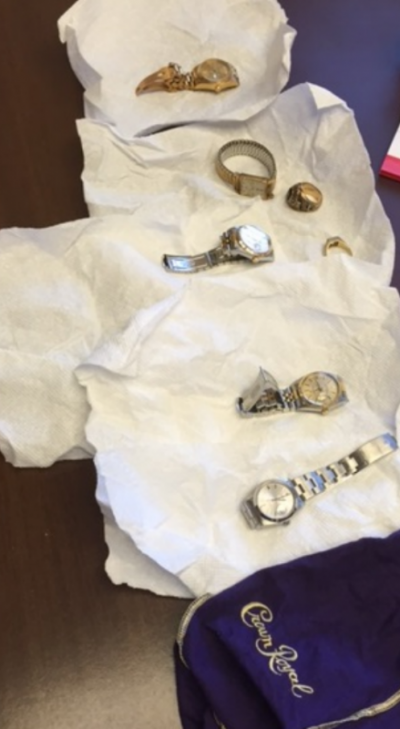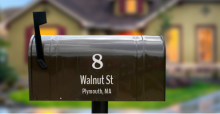John George’s cash cache grows to about $2.5 million
The U.S. Attorney’s Office announced on Monday, Jan. 11 that more money and valuables have been discovered in safety deposit boxes controlled by former Dartmouth Select Board member John George, Jr.
On Jan. 7, federal agents recovered $800,000 in cash, four Rolex watches and jewelry stowed away in three safe deposit boxes. The total value of both seizures is estimated to be about $2.5 million.
The seizure was a joint effort by the U.S. Attorney’s Office, the U.S. Marshals Service and the Internal Revenue Service, according to a release from the Department of Justice. The latest findings came about following court authorization to seize additional money and items discovered during the initial search.
Last month, $1 million of George’s money was uncovered in safe deposit boxes at three banks in New Bedford and Fairhaven. U.S. Attorney Carmen Ortiz’s office said at the time that the oversized safe deposit boxes were “filled to the brim” with rolls of $100 and $50 dollar bills.
According to court documents, the seized funds are currently being held by the United States Marshal Service.
Last summer, George was sentenced to 70 months in prison for embezzling thousands from the taxpayer-subsidized Southeastern Regional Bus Company (SRTA). U.S. District Court Judge Denise Casper ordered George to pay a $1.38 million forfeiture to the federal government and $688,772 owed in restitution.
Prior to the sentencing, George was required to disclose his financial status to the court. He stated his liquid assets totaled roughly $160,000 in bank accounts and $28,000 in cash. However, the U.S. Attorney’s Office and U.S. Marshals sought warrants to obtain assets they believed went unreported.
George owned both John George Farms in Dartmouth and the Union Street Bus Company. George was convicted on charges that he embezzled money from his bus company, which operated under a SRTA contract.
While operating under his SRTA contract, George had bus employees work on his farm during bus company work hours. George also inflated his yearly salary from $75,000 to $275,000 as a means of boosting his SRTA pension.
The court ruled that George received more than $1.38 million in management fees between 2006 and 2011, which he would not have received “had he not concealed his fraudulent conduct from SRTA.”
In explanation of prosecutors' suspicions in seeking the search warrants, Ortiz noted that, from 2007 to 2011, George deposited only $5,000 in cash into his farm account despite the farm being “the largest retail produce farm in Southeastern Massachusetts” and doing most of its business through cash transactions.
On Dec. 30, not long after the first seizure, federal prosecutors filed a motion with the U.S. District Court in Boston requesting that the uncovered cash be used toward the money George owes in restitution to SRTA.
Whether the latest findings will result in a tax evasion case is uncertain at this time, but the second seizure involved the IRS.
















